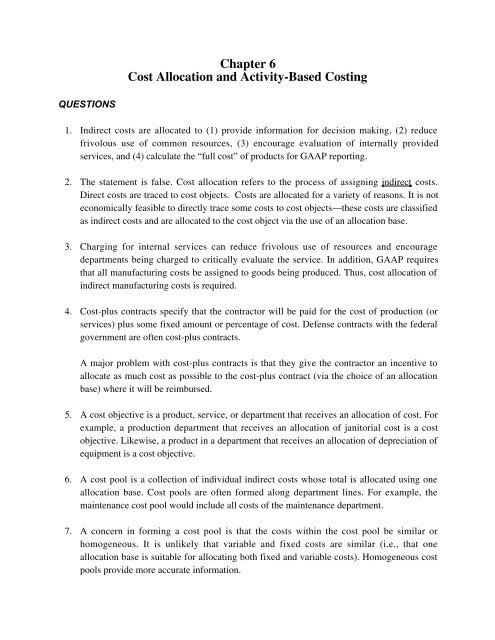
A business plan involves outlining your plans for your company in detail. It is a comprehensive document that explains not only your services but also your market and the competitive advantage you’ll have in your business. It’ll help you focus your business and run efficiently out of the gate.
What is the simplest bookkeeping software?
Then categorize your expenses into different categories, start estimating your expected revenue for the upcoming period, and allocate your expenses accordingly. https://www.quick-bookkeeping.net/ Here’s a crash course on small-business bookkeeping and how to get started. We believe everyone should be able to make financial decisions with confidence.
Step 2: Categorize your business transactions
Digital recordkeeping of your business’s finances can streamline your bookkeeping process, reduce clutter, and improve data security. You can file information in your accounting software or another cloud-based program. Categorize documents like invoices, cash flow statements, income statements, bank statements, and receipts. Bookkeeping for small businesses is the systematic process of recording, organizing, and managing financial transactions. It involves documenting income, expenses, purchases, and sales to maintain accurate financial records.
DIY vs. professional bookkeeping
It’s also possible to link your cloud accounting software to other financial programs that your business uses, like your online banking or mobile payment apps. With all your software linked through the cloud, payments that you make and receive can be automatically recorded to a digital ledger. The software program can then make the calculations for you, giving you an accurate picture of your total income and spending that’s updated every time your money moves. As a responsible small business owner or bookkeeper, you should be aware of your company’s revenue streams.
Our partners cannot pay us to guarantee favorable reviews of their products or services. This investment can benefit your business in that an accounting professional will be up-to-date on tax laws and regulations and can sometimes find deductions that were overlooked. Depositing your salary into your personal account may help alleviate bookkeeping errors. This is generated by looking at your assets and what you own versus your liabilities and outstanding debts. It can help determine if your business is taking on too much debt to support its revenue. If you find it feasible to keep your books in-house, you might consider using a software accounting program.

The latter could be a great option if you might bring in some help down the line. Regardless of the type of business you run, all business owners should write a business plan. It can take a professional bookkeeper 2 to 4 hours to process one month’s worth of bank transactions, finalize a bank reconciliation, and produce a set of reports.
To ensure that peaceful slumber, form a habit of documenting everything. Jot down notes about purchases and expenses and throw them in the file. Develop a storage system and naming protocol for invoices, receipts, and records. Get in the know with our how-to guide to bookkeeping basics for small business owners. During that hour, you can work through a checklist of routine tasks. DIY bookkeeping is simplest when you break it into manageable chunks—don’t try to do it all at once.
Bookkeepers use a chart of accounts to see all of the accounts in a company’s general ledger. In many instances, an accountant prepares the initial chart, and the bookkeeper references it while recording transactions. The income statement is a holistic report that shows revenue and expenses https://www.quick-bookkeeping.net/what-is-irs-form-8379/ over a set period of time. It can be produced for one period to gain insight into the month’s profitability, or produced for the year to period. And sometimes it can be produced to include comparisons against the prior year’s same period or the prior year’s year-to-period data.
It’s really important to keep a close eye on cash flow, because if it stops, your business won’t be able to function. By regularly checking what money is available, you can better manage how you pay suppliers, invest in stock, or even extend your credit if needed. Cash flow is the amount of money that comes in and out of the business.
In the early days, you’ll be able to manage all of these without too much trouble. This involves collecting and storing financial information such as receipts, invoices and bank statements. You need to do some bookkeeping practices by law, and accuracy is essential for paying the right amount of tax to HMRC each year. All new business owners must make it a priority to open a new bank account for their business, preferably an account with online access, to keep business funds separate from personal funds.
When you review the sales shown on your financial reports for the past few months, you can get insight into your future sales. There are numerous systems online for scanning, managing, and organizing receipts. The best combine OCR and AI tools to make your data entry easier and less prone to mistakes. One of the best things you can do to ensure your books balance properly is to follow the three golden bookkeeping rules. To uncover errors, check whether you forgot to record an entry in either column of your accounting ledger. Balancing your books allows you to catch any errors or mistakes in your bookkeeping.
- You likely won’t have the same exact accounts as the business next door—that’s one key reason we recommend meeting with a CPA to set up an individualized chart of accounts specific to your business.
- Bookkeeping is different from accounting in that it is the critical first step in tracking all business activities.
- Set a date early enough each month to give you time to prepare the paperwork.
Since 2000, Invensis has been catering to the diverse outsourcing needs of clients for multiple industries and constantly striving to add value to clients’ businesses. In the fast-evolving landscape of small businesses, bookkeeping remains a fundamental pillar of success. As these businesses gaze into the future, technology will continue to streamline the process, providing more automation, accuracy, and efficiency. The emergence of AI and ML will further empower small business owners in managing their finances. However, amidst the whirlwind of technological advancements, the human touch in understanding financial nuances and strategic decision-making will remain irreplaceable.
While searching for accounting software, look at things like storage, accessibility, and security. Make a list of things that are must-haves for your business, like certain features, pricing, and reports. Make sure to tackle your books when your mind is fresh and engaged—say, at the start of the day before you open your doors rather than late at night, after you’ve closed up shop. You want to be at your best when you’re looking at figures that explain your business’s profitability and help you chart a course for progress. Every time you perform a financial transaction—for instance, make a sale, accept a client’s invoice, or pay a bill—you should record that transaction in your general ledger. Recording a financial transaction in your general ledger is referred to as making a journal entry.

When it comes to your books, keep a thorough record of all your expenses, such as supplies, inventory, insurance, and utilities. And, come up with a why the quick ratio is important game plan on how you will handle unforeseen expenses. That way, you can better predict larger expenses and not be caught off guard in the future.

